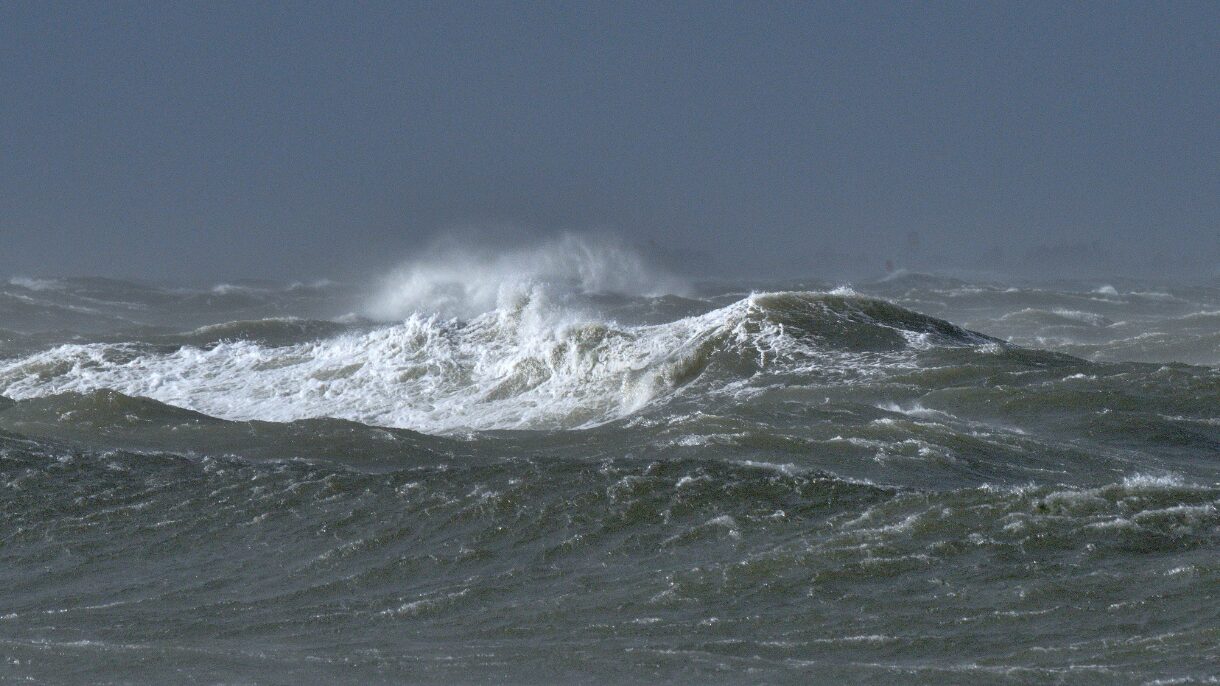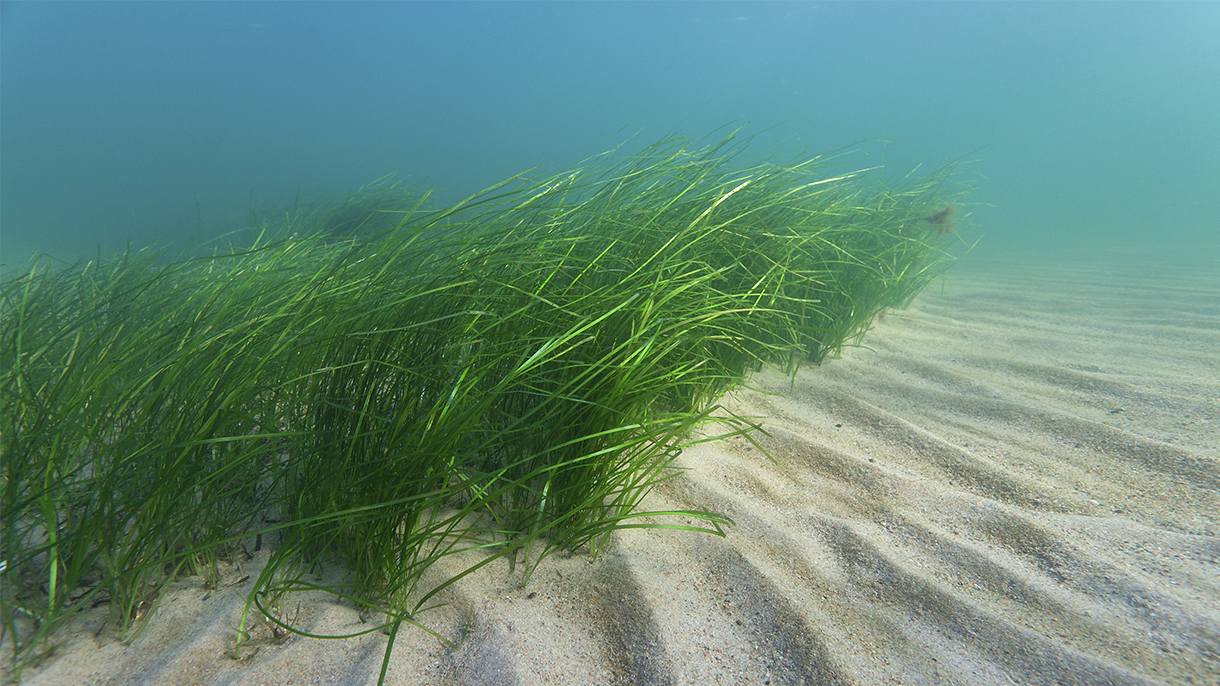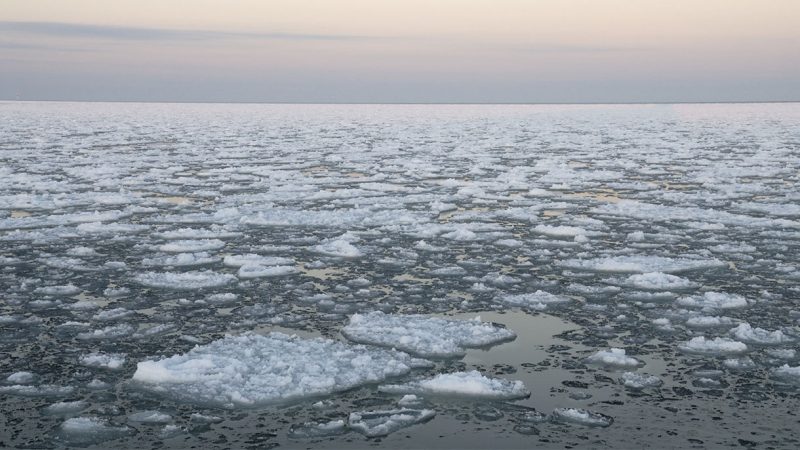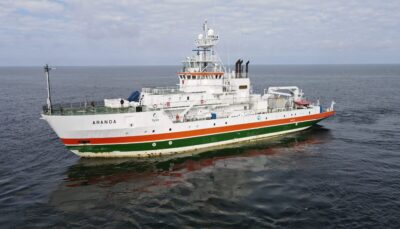The ocean – our ally against climate change

Text:
The ocean is the lungs of the Earth shielding us against the worst effects of climate change. It is vital to support marine ecosystems to ensure they can continue to play their critical role as the world’s life support system in the years to come. We often lament the findings of science regarding the state of the environment and climate change, as well as the inaction and inadequate targets set by others. We say we already have the solutions: what is needed next is money and political will. But how can these be achieved?
With greenhouse gas levels reaching new heights, we find ourselves bound to rising temperatures for years to come. The fossil fuel industry should be phased out as quickly as possible. According to a report by UNEP under current policies, we are projected to see a temperature increase of 2.6-3.1°C by the end of this century. The threshold of keeping average temperatures below 1.5°C above pre-industrial levels by 2100 is technically still achievable but would require swift and significant action from all countries.
Only days before the climate conference COP29 in Baku, Copernicus Climate Change Service warned 2024 is “virtually certain to be the warmest year and first year above 1.5°C.”
The ocean’s climate power
The ocean has helped us by working as a buffer against climate change: it has absorbed over 90 percent of the excess heat and nearly 30 percent of the harmful carbon dioxide caused by human activities. However, as with all natural resources, the ocean too has its limits: it is getting warmer and more acidic than ever recorded. Heat waves are killing marine mammals and important coral reefs are suffering from bleaching.
The healthier and more diverse our marine ecosystems are, the greater their long-term resilience to the changes brought by a warming climate.
“Take marine vegetation, for example. Seagrasses form valuable habitats and capture and, in suitable conditions, store carbon in their roots and the seabed, slowing greenhouse gas buildup. These plants have been harmed by pollution, so restoring them strengthens our fight against climate change. Protecting marine biodiversity is not just about saving species – it is about building a more resilient future for us all”, explains Ulla Rosenström, Director of Marine Environment at John Nurminen Foundation.

Prioritizing climate action
What is the key to prioritizing climate change on the agendas of decision-makers? Is it more disasters, good will, scientific knowledge, artistic expression, pressure from civil society, or global meetings?
It is well known that prompt climate action is critical. A recent report from climate scientists raises a loud alarm about the pressing dangers of climate change, e.g., the collapse of Amazon rainforests and the vital Atlantic Ocean currents. The scientists highlight that, despite all the global meetings and scientific results, the world is still on the wrong path, not least because of the resistance to change from those benefiting from the current fossil fuel-dependent systems.
Surely there is reason to cast blame on those greenwashing their way through our collective issues. But at the same time, we need decisive action from those forming the rules of the game. Climate change impacts are unevenly distributed, both globally and within societies, making climate action also a matter of social justice.
We are obliged to alter how we think and what drives us forwards. This means cutting down consumption – redefining what is meant by ‘normal’. As the climate scientists of the report write: “In a world with finite resources, unlimited growth is a perilous illusion.”
“We are running out of time, yet world leaders keep calling for more research and evidence. The evidence is out there for the plain eyes to see. Sometimes I feel that they are simply looking for excuses not the act”, says Rosenström.
COP29 to discuss climate finance
If we wish to continue existing on a living planet, we simply must scale back the use of fossil fuels. After COP28 in Dubai last year, it was called for that the nearly 200 Parties would transition away from fossil fuels. In 2023 we reached new global records of CO2 emissions. The opposite should be happening.
Representatives from countries are gathering in Baku, Azerbaijan, from November 11 to 22 for the United Nations’ global climate conference COP29. This COP has been called the “Finance COP”: at stake is setting finance plans to support climate action that is desperately needed around the globe, especially in the front lines of climate crisis.
Yet, the conference is beginning amidst conflicting sentiments. The highest leaders from several parties, such as the EU, US, and China, are about to skip COP29. Papua New Guinea, on the other hand, has altogether decided to pull out of the conference in protest of the major emitting nations and the lack of support for climate victims. The conference is hosted by Azerbaijan, an authoritarian regime and a major oil and gas producer with no ambitious climate targets, according to Climate Action Tracker.
It remains to be seen how the talks will unfold and whether an agreement will be reached – or if the conference will serve mainly as a venue for greenwashing.

Ocean at the COP29
The ocean holds solutions that can help us mitigate climate change. According to a report from the High Level Panel for a Sustainable Ocean Economy, some solutions involve increasing renewable energy, reducing offshore oil and gas extraction, restoring marine ecosystems, and decarbonizing ocean-based activities.
Both the UN Convention on Climate Change and the Paris Agreement recognize that the ocean has a crucial role in climate action. However, the ocean – its conservation, research and sustainable use – need more attention and funding. The funding of Sustainable Development Goal 14, Life Below Water, is noticeably lacking behind.
At COP29, an Ocean Pavilion will bring together key actors to highlight the importance of the ocean for people worldwide. The Pavilion will focus on nine themes, from justice and equity to the changing ecosystems beneath the ocean’s surface. A ‘Baku Ocean Declaration,’ signed by the Pavilion’s partners, also calls for greater attention to be given to ocean issues.
Swift change is crucial
Climate action needs to be prioritized in political decision-making, investments, and different industry practices. Sustainable ocean-based activities are one part of a wider change that is needed in halting climate change.
The solutions lie where the problem originates: in humans. This does not mean inventing a new machine that sweeps the entire problem away, but changing the very fundamental beliefs our societies hold.
References:
World Meteorological Ogranization
UN environment programme
Copernicus Climate Change Service
The High Level Panel for a Sustainable Ocean Economy
CICERO Center for International Climate Research
Climate Action Tracker


